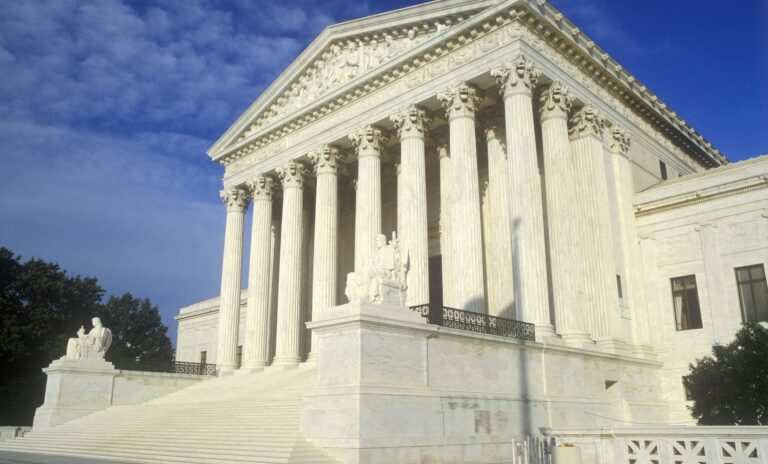
In a major victory for business, the Supreme Court Friday gave judges more power to block new regulations if they are not clearly authorized by federal law.
The court’s conservative majority overturned a 40-year-old rule that said judges should defer to agencies and their regulations if the law is not clear.
The vote was 6-3, with the liberal justices dissenting.
The decision deals a sharp setback to environmentalists as well as to unions and healthcare regulators. Along with the Biden administration, they argued that judges should defer to agency officials who are experts in their fields and have a duty to enforce the law.
This deference rule, known as the Chevron doctrine, had taken on extraordinary importance in recent decades because Congress has been divided and unable to pass new laws on pressing matters like climate change, online commerce, hospitals and nursing care and workplace conditions.
Instead, new administrations, and in particular Democratic ones, sought to make change by adopting new regulations based on old laws. For example, the climate change regulations proposed by the Obama and Biden administrations were based on provisions of the Clean Air Act of 1970.
But that strategy depended on judges being willing to defer to the agencies and to reject challenges from businesses and others who maintained the regulations went beyond the law.
The court’s Republican appointees came to the case skeptical of the Chevron doctrine. They fretted about the “administrative state” and argued that unelected federal officials should not be afforded powers typically reserved for lawmakers.
“Chevron is overruled,” Chief Justice John G. Roberts Jr. wrote Friday for the majority.
In decades past, the Chevron doctrine was supported by prominent conservatives, including the late Justice Antonin Scalia. In the 1980s, he believed it was better to entrust decisions about regulations to agency officials who worked for the president rather than to unelected judges. He was also reflecting an era when Republicans, from Richard Nixon and Gerald Ford to Ronald Reagan and George H.W. Bush, controlled the White House.
But since the 1990s, when Democrat Bill Clinton was president, conservatives have increasingly complained that judges were rubber stamping new federal regulations.
Business lawyers went in search of an attractive case to challenge the Chevron doctrine, and they found it in the plight of four family-owned fishing boats in New Jersey.
Their case began with a 1976 law that seeks to conserve the stocks of fish. A regulation adopted by the National Marine Fishery Service in 2020 would have required some herring boats to not only carry a federal monitor on board, but also pay the salary of the monitor. Doing so was predicted to cost more than $700 a day, or about 20% of what the fishing boats earned on average.
The regulation had not taken effect, but it was upheld by a federal judge and the D.C. Circuit Court’s appellate judges who deferred to the agency’s interpretation of the law.
This story originally appeared in Los Angeles Times.
©2024 Los Angeles Times. Visit latimes.com. Distributed by Tribune Content Agency, LLC.
0 comments :
Post a Comment